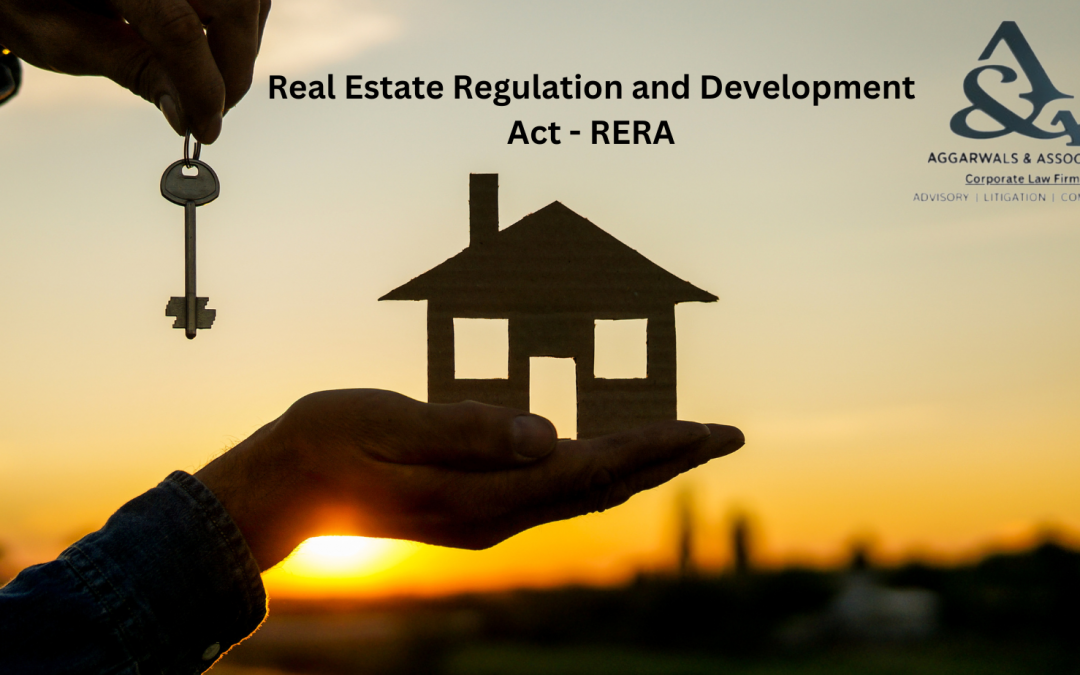What is RERA?
RERA stands for Real Estate Regulation and Development Act, (hereinafter referred to as Act) a law passed by the Indian government in 2016, aimed at regulating and promoting the Indian real estate sector by protecting the interests of consumers and boosting investment in the industry. The Act ensures transparency of work and for the upliftment of the real estate industry with time.
What are the benefits of RERA?
- Consumer protection:
RERA ensures that the interests of consumers are protected by setting clear guidelines for fair and transparent real estate transactions. The act mandates that developers must complete projects within a specified timeline and imposes penalties for delays. If the buyer finds that the tile is not correct even after the possession then also the buyer can claim the compensation from builder.
- Transparency in pricing and approvals:
Developers are required to disclose all information about a project, including pricing and approvals, to potential buyers. By creating a more transparent and regulated real estate sector, RERA aims to increase investment in the industry, leading to more housing options and job creation. Before the Act, the amount calculated was never fixed. The builder always used to give different prices for same flats / property. But, now cause of the RERA authority’s defined carpet area, the price is fixed for all the same carpet areas. RERA provides a platform for a single-window clearance system, making it easier for developers to obtain the necessary approvals and permits.
The Act defines carpet area as follows: “carpet area” means the net usable floor area of an apartment, excluding the area covered by the external walls, areas under services shafts, exclusive balcony or verandah area and exclusive open terrace area, but includes the area covered by the internal partition walls of the apartment.
- Dispute resolution mechanism:
The act provides a fast-track dispute resolution mechanism to resolve any disputes between developers, buyers, and other stakeholders in a timely and cost-effective manner. The dispute can be resolved by following ADR (Alternative dispute resolution) mechanism i.e., Arbitration, mediation and conciliation. The ADR mechanism is a cost-effective and easy procedure to resolve disputes among parties.
- Rate of interest same:
If the buyer has not completed the payment on time or the builder has not completed the building then both buyer and builder are liable to pay the same rate of interest to the Authority.
- Grievance Redressal:
The buyer, promoter or agent has any issues with respect to the project then they can file a case in the RERA authority and still if they are not satisfied with the RERA order they can go to Appellate Tribunals. No civil court of the jurisdiction has the right to hear the case only the Appellate Tribunals can only do so.
What is the objective of establishing the RERA Authority?
- Protect the interests of consumers in the real estate sector by setting clear guidelines for fair and transparent real estate transactions.
- Promote the growth of the real estate sector by boosting investment and increasing the supply of housing.
- Ensure timely delivery of real estate projects by mandating that developers complete projects within a specified timeline and imposing penalties for delays.
- Enhance transparency in the real estate sector by requiring developers to disclose all information about a project, including pricing and approvals, to potential buyers.
- Provide a fast-track dispute resolution mechanism to resolve disputes between developers, buyers, and other stakeholders in a timely and cost-effective manner.
- Regulate the unorganised sector of real estate by bringing in a higher degree of accountability and professionalism.
- Enhance consumer confidence in the real estate sector by establishing a regulatory framework that promotes transparency, accountability, and fairness.
Surbhi Singla
Associate at Aggarwals & Associates, S.A.S Nagar Mohali.


